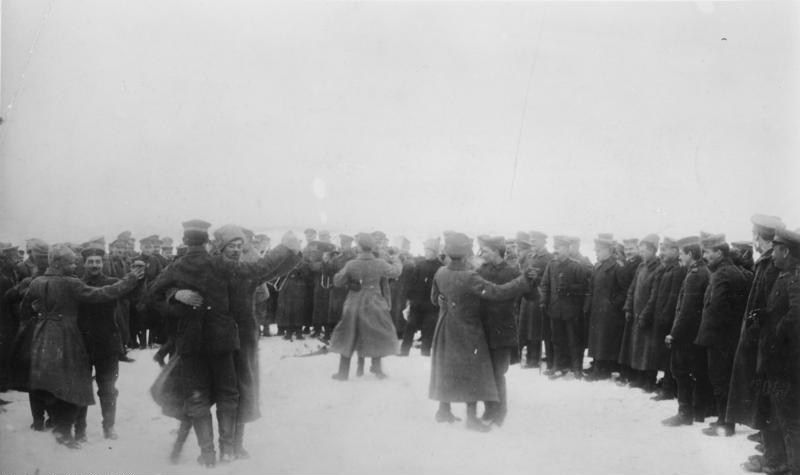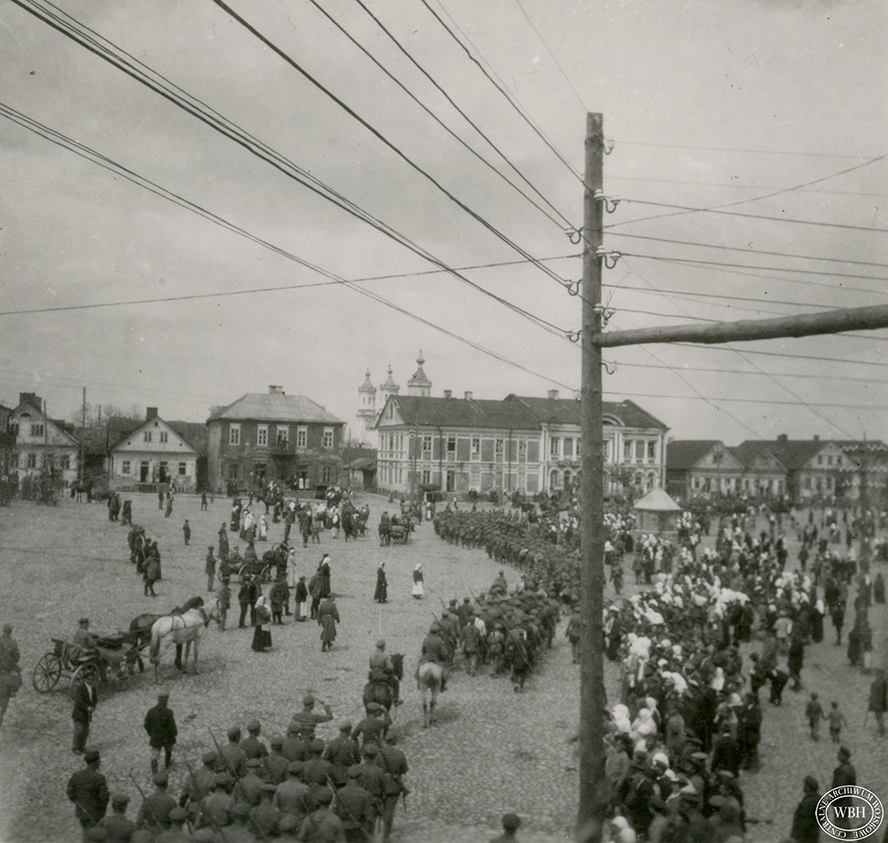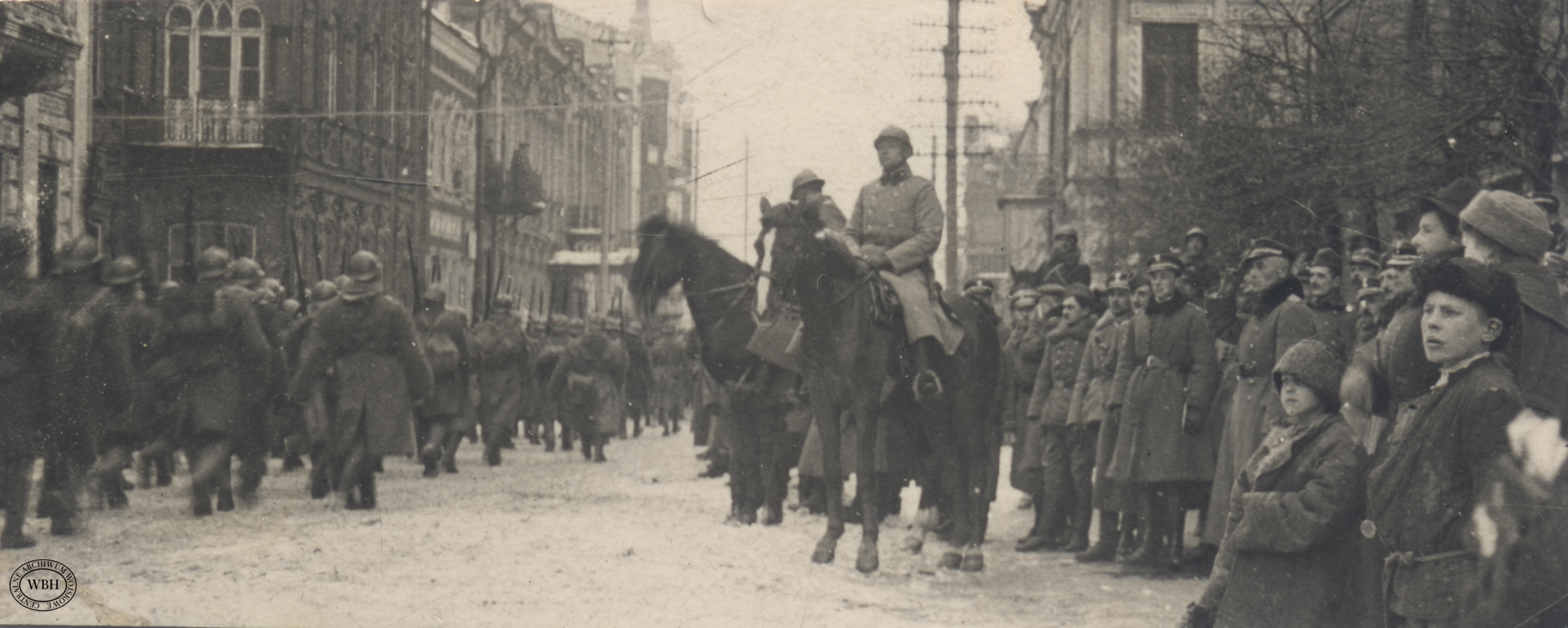Wojna polsko-bolszewicka
As a result of the 1917 October Revolution power in Russia was taken over by the Bolsheviks. The German troops quickly seized the territories of the revolution-stricken state: Ukraine, Belarus, Lithuania, and the terrains of the later states of Latvia and Estonia. In line with the armistice of 11 November 1918, the ultimate defeat of Germany in the west resulted in its loss of the territories it captured in the east.
The path to international conflagration leads over the dead body of White Poland.



